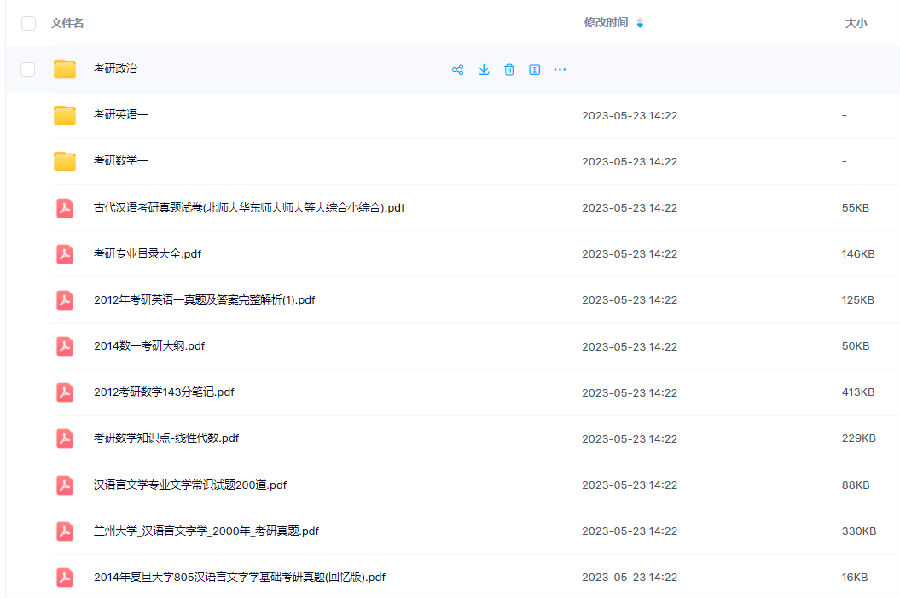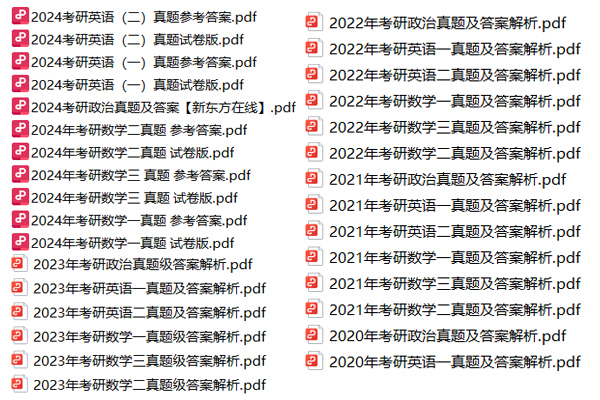特惠-26考研冲刺
特惠-27考研课
双证-在职硕士
免联考-同等学力
复试分数线
26复试全面指导
模拟复试面试
26考研-全套真题
26考研估分
保研-路线图
27考研-智能择校
27考研-英语测评
27考研-新大纲对比
热门-计算机择校

扫码加入训练营
牢记核心词
学习得礼盒
考研英语真题来源报刊阅读习题连载如下,每日坚持阅读,语法单词并不是不可逾越的鸿沟,以下内容请作参考。
考研英语真题来源报刊阅读连载(1)
A fuzzy picture
(The Economist, Jan 5th,2006)
“THIS is a really exciting time—a new era is starting,” says Peter Bazalgette, the chief creative officer of Endemol, the television company behind “Big Brother” and other popular shows. He is referring to the upsurge of interest in mobile television, a nascent industry at the intersection of telecoms and media which offers new opportunities to device-makers, content producers and mobile-network operators.
Already, many mobile operators offer a selection of television channels or individual shows, which are “streamed” across their third-generation (3G) networks. In South Korea, television is also sent to mobile phones via satellite and terrestrial broadcast networks, which is far more efficient than sending video across mobile networks. In Europe, the Italian arm of 3, a mobile operator, recently acquired Canale 7, a television channel, with a view to launching mobile-TV broadcasts in Italy in the second half of 2006.
Meanwhile, Apple Computer, which launched a video-capable version of its iPod portable music-player in October, is striking deals with television networks to expand the range of shows that can be purchased for viewing on the device, including “Lost”, “Desperate Housewives” and “Law & Order”.
Despite all this activity, however, the prospects for mobile-TV are unclear. For a start, nobody really knows if consumers will pay for it, though surveys suggest they like the idea. Informa, a consultancy, says there will be 125m mobile-TV users by 2010. But many other mobile technologies inspired high hopes and then failed to live up to expectations. And even if people do want TV on the move, there is further uncertainty in two areas: technology and business models.
At the moment, mobile TV is mostly streamed over 3G networks. But sending an individual data stream to each viewer is inefficient and will be unsustainable in the long run if mobile-TV takes off. So the general consensus is that 3G streaming is a prelude to the construction of dedicated mobile-TV broadcast networks, which transmit digital TV signals on entirely different frequencies to those used for voice and data. There are three main standards: DVB-H, favoured in Europe; DMB, which has been adopted in South Korea and Japan; and MediaFLO, which is being rolled out in America. Watching TV using any of these technologies requires a TV-capable handset, of course.
In contrast, watching downloaded TV programmes on an iPod or other portable video player is already possible today. And unlike a programme streamed over 3G or broadcast via a dedicated mobile-TV network, shows stored on an iPod can be watched on an underground train or in regions with patchy network coverage. That suggests that some shows (such as drama) better suit the download model, while others (such as live news, sports or reality shows) are better suited to real-time transmission. The two approaches will probably co-exist.
Just as there are several competing mobile-TV technologies, there are also many possible business models. Mobile operators might choose to build their own mobile-TV broadcast networks; or they could form a consortium and build a shared network; or existing broadcasters could build such networks.
The big question is whether the broadcasters and mobile operators can agree how to divide the spoils, assuming there are any. Broadcasters own the content, but mobile operators generally control the handsets, and they do not always see eye to eye. In South Korea, a consortium of broadcasters launched a free-to-air DMB network last month, but the country’s mobile operators were reluctant to provide their users with handsets able to receive the broadcasts, since they were unwilling to undermine the prospects for their own subscription-based mobile-TV services.
Then there is the question of who will fund the production of mobile-TV content: broadcasters, operators or advertisers? Again, the answer is probably “all of the above”.
1. The word “nascent” (line 3, paragraph 1) most probably means .
A. significant B. Time-consuming
C. apparent D. Brand-new
2. It can be inferred from paragraph 2 that .
A. communication companies welcome mobile TV
B. mobile-TV is not allowed in many countries
C. mobile-TV has already been served in many countries
D. mobile-TV is coming to an end
3. The author cites the example of Informa to demonstrate that .
A. the prospect of mobile-TV is bright
B. surveys and observations on mobile-TV is not quite credible
C. MTV has encountered great technology troubles
D. consultancy companies play an important role in MTV business
4. According to the passage, the author istowards the prospects of MTV .
A. optimistic B. impartial C. puzzled D. suspicious
5. Which of the following can be the best title for the passage?
A. MTV, a Foggy Business B. Embracing MTV
C. Business Models D. Ways for MTV
考研词汇
launch
v.①发射;②使(船)下水;③发动,开展;
n.发射,下水
[真题例句]The debate was launched (v.③) by the Government, which invited anyone with an opinion of the BBC—including ordinary listeners and viewers—to say what was good or bad about the Corporation, and even whether they thought it was worth keeping.[1996年阅读2]
[例句精译]这场争论是英国政府发起的,它邀请每一位对BBC有看法的人——包括普通的听众和观众——对公司好坏进行评论,甚至可以评论他们是否认为公司值得办下去。
inspire
v.①鼓舞,激起;②使产生灵感
consensus
n.(意见等)一致,一致同意
[真题例句] In a draft preface to the recommendations, discussed at the 17 May meeting, Shapiro suggested that the panel had found a broad consensus that it would be “morally unacceptable to attempt to create a human child by adult nuclear cloning.”[1999年阅读4]
[例句精译] 在5月17日会议上讨论的建议序言草案中,夏皮罗表示,专家组已取得广泛的共识,认为“试图利用成人细胞核去克隆婴儿从道义上讲是无法接受的”。
transmit
v.①传播,发射;②传递,传导
[真题例句] 61. From the passage we can infer that.[1995年阅读3]
[A] electronic mail will soon play a dominant role in transmitting (①) messages
[例句精译] 61根据本文,我们可以推断出:
[A]电子邮件将很快在信息传播中起主导作用
adopt
v.①采用,采纳,通过;②收养
[真题例句] Too many schools adopt (①) the “win at all costs” moral standard and measure their success by sporting achievements.[1995年阅读4]
[例句精译] 太多的学校采用“不惜一切代价获取成功”的道德标准并通过炫耀成绩来估量孩子们是否成功。
portable
a.轻便的,手提(式)的
【英语阅读资料】这里有↑↑↑

 资料下载
资料下载
2014年-2025年考研历年真题汇总
发布时间:2024-04-25扫码添加【考研班主任】
即可领取资料包
考研大纲PDF电子版下载-历年(附解析)
发布时间:2024-04-25扫码添加【考研班主任】
即可领取资料包
2026年考研政数英备考资料zip压缩包
发布时间:2024-04-25扫码添加【考研班主任】
即可领取资料包
考研英语大纲词汇5500打印版(基础必备)
发布时间:2024-04-25扫码添加【考研班主任】
即可领取资料包
新东方在线考试模拟题【12套】
发布时间:2024-04-25扫码添加【考研班主任】
即可领取资料包
2026年考研专业课知识点总结
发布时间:2024-04-25扫码添加【考研班主任】
即可领取资料包
新东方考研资料下载地址
发布时间:2023-05-17新东方在线考研资料合集
下载方式:微信扫码,获取网盘链接

目录:
1.2013-2023年近10年政数英真题及解析PDF版(新东方)
2.2013-2023年专业课考试历年真题及解析PDF版
3.24考研复习备考资料大合集:大纲+备考资料+词汇书+考前押题+自命题
资料介绍:
1.2013-2023年近10年政数英真题及解析PDF版(新东方)
 、
、
2.2013-2023年专业课考试历年真题及解析PDF版


3.24考研复习备考资料大合集

3.24考研复习备考资料:考研大纲

3.24考研复习备考资料:政数英备考资料+自命题真题

------------------
考研备考过程中,尤其是专业课部分,参考往年的考试真题,对于我们的复习有更好的帮助。北京大学考研真题资料都有哪些?小编为大家进行了汇总。
北京大学考研真题资料-公共课

北京大学考研真题资料-专业课


以上就是关于“北京大学考研真题资料下载(历年汇总)”的整理,更多考研资料下载,请关注微信获取下载地址。
2024考研公共课必背知识点汇总
发布时间:2023-01-03扫码添加【考研班主任】
即可领取资料包
2013-2023考研历年真题汇总
发布时间:2023-01-03扫码添加【考研班主任】
即可领取资料包
考研英语大纲词汇(PDF可打印)
发布时间:2023-01-03扫码添加【考研班主任】
即可领取资料包
2024考研专业课知识点总结
发布时间:2023-01-03扫码添加【考研班主任】
即可领取资料包
2023考研政治 内部押题 PDF
发布时间:2022-11-16扫码添加【考研班主任】
即可领取资料包
徐涛:23考研预测六套卷
发布时间:2022-11-16扫码添加【考研班主任】
即可领取资料包
考研政数英冲刺资料最新整理
发布时间:2022-11-16扫码添加【考研班主任】
即可领取资料包
23考研答题卡模板打印版
发布时间:2022-11-16扫码添加【考研班主任】
即可领取资料包
2023考研大纲词汇5500PDF电子版
发布时间:2022-07-28扫码添加【考研班主任】
即可领取资料包
考研历年真题(公共课+专业课)
发布时间:2022-07-28扫码添加【考研班主任】
即可领取资料包
考研英语阅读100篇附解析及答案
发布时间:2022-01-07扫码添加【考研班主任】
即可领取资料包
新东方考研学霸笔记整理(打印版)
发布时间:2022-01-07扫码添加【考研班主任】
即可领取资料包
2001-2021年考研英语真题答案(可打印版)
发布时间:2022-01-07扫码添加【考研班主任】
即可领取资料包
考研英语词汇5500(完整版下载)
发布时间:2022-01-07扫码添加【考研班主任】
即可领取资料包
2022考研政审表模板精选10套
发布时间:2022-01-07扫码添加【考研班主任】
即可领取资料包
历年考研真题及答案 下载
发布时间:2021-12-09扫码添加【考研班主任】
即可领取资料包
考研政审表模板汇总
发布时间:2020-06-17扫码添加【考研班主任】
即可领取资料包
近5年考研英语真题汇总
发布时间:2020-06-17扫码添加【考研班主任】
即可领取资料包
考研英语大纲词汇5500
发布时间:2020-06-17扫码添加【考研班主任】
即可领取资料包
2022考研12大学科专业排名汇总
发布时间:2019-11-21扫码添加【考研班主任】
即可领取资料包
2023考研政治复习备考资料【珍藏版】
发布时间:2019-11-21扫码添加【考研班主任】
即可领取资料包
考研英语万能模板+必备词汇+范文
发布时间:2019-11-21扫码添加【考研班主任】
即可领取资料包
考研数学一、二、三历年真题整理
发布时间:2019-11-21扫码添加【考研班主任】
即可领取资料包

添加班主任领资料
添加考研班主任
免费领取考研历年真题等复习干货资料

 推荐阅读
推荐阅读
为了让考研的同学更高效地复习考研英语,新东方在线考研频道整理了“考研英语1阅读错几个后的复习计划”,考研的同学可以了解一下,希望对大家有所帮助。
为了让考研的同学更高效地复习考研英语,新东方在线考研频道整理了“考研英语二阅读篇数及题型分析”,考研的同学可以了解一下,希望对大家有所帮助。
为了让考研的同学更高效地复习考研英语,新东方在线考研频道整理了“考研英语阅读理解的总结与反思”,考研的同学可以了解一下,希望对大家有所帮助。
来源 : 网络 2025-06-13 08:02:00 关键字 : 考研英语阅读理解
为了让考研的同学更高效地复习考研英语,新东方在线考研频道整理了“提高考研英语一阅读理解的五大策略”,考研的同学可以了解一下,希望对大家有所帮助。
为了让考研的同学更高效地复习考研英语,新东方在线考研频道整理了“探索考研英语阅读文章的逻辑结构”,考研的同学可以了解一下,希望对大家有所帮助。
来源 : 网络 2025-06-12 08:03:00 关键字 : 考研英语阅读

 资料下载
资料下载
扫码添加【考研班主任】
即可领取资料包
扫码添加【考研班主任】
即可领取资料包
扫码添加【考研班主任】
即可领取资料包
扫码添加【考研班主任】
即可领取资料包
扫码添加【考研班主任】
即可领取资料包
扫码添加【考研班主任】
即可领取资料包
新东方在线考研资料合集
下载方式:微信扫码,获取网盘链接

目录:
1.2013-2023年近10年政数英真题及解析PDF版(新东方)
2.2013-2023年专业课考试历年真题及解析PDF版
3.24考研复习备考资料大合集:大纲+备考资料+词汇书+考前押题+自命题
资料介绍:
1.2013-2023年近10年政数英真题及解析PDF版(新东方)
 、
、
2.2013-2023年专业课考试历年真题及解析PDF版


3.24考研复习备考资料大合集

3.24考研复习备考资料:考研大纲

3.24考研复习备考资料:政数英备考资料+自命题真题

------------------
考研备考过程中,尤其是专业课部分,参考往年的考试真题,对于我们的复习有更好的帮助。北京大学考研真题资料都有哪些?小编为大家进行了汇总。
北京大学考研真题资料-公共课

北京大学考研真题资料-专业课


以上就是关于“北京大学考研真题资料下载(历年汇总)”的整理,更多考研资料下载,请关注微信获取下载地址。
扫码添加【考研班主任】
即可领取资料包
扫码添加【考研班主任】
即可领取资料包
扫码添加【考研班主任】
即可领取资料包
扫码添加【考研班主任】
即可领取资料包
扫码添加【考研班主任】
即可领取资料包
扫码添加【考研班主任】
即可领取资料包
扫码添加【考研班主任】
即可领取资料包
扫码添加【考研班主任】
即可领取资料包
扫码添加【考研班主任】
即可领取资料包
扫码添加【考研班主任】
即可领取资料包
扫码添加【考研班主任】
即可领取资料包
扫码添加【考研班主任】
即可领取资料包
扫码添加【考研班主任】
即可领取资料包
扫码添加【考研班主任】
即可领取资料包
扫码添加【考研班主任】
即可领取资料包
扫码添加【考研班主任】
即可领取资料包
扫码添加【考研班主任】
即可领取资料包
扫码添加【考研班主任】
即可领取资料包
扫码添加【考研班主任】
即可领取资料包
扫码添加【考研班主任】
即可领取资料包
扫码添加【考研班主任】
即可领取资料包
扫码添加【考研班主任】
即可领取资料包
扫码添加【考研班主任】
即可领取资料包

 阅读排行榜
阅读排行榜
 相关内容
相关内容